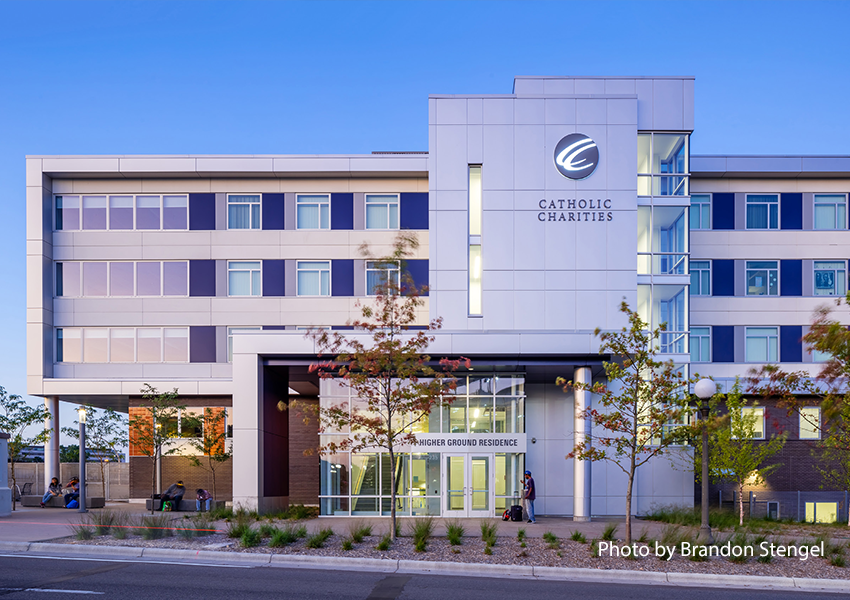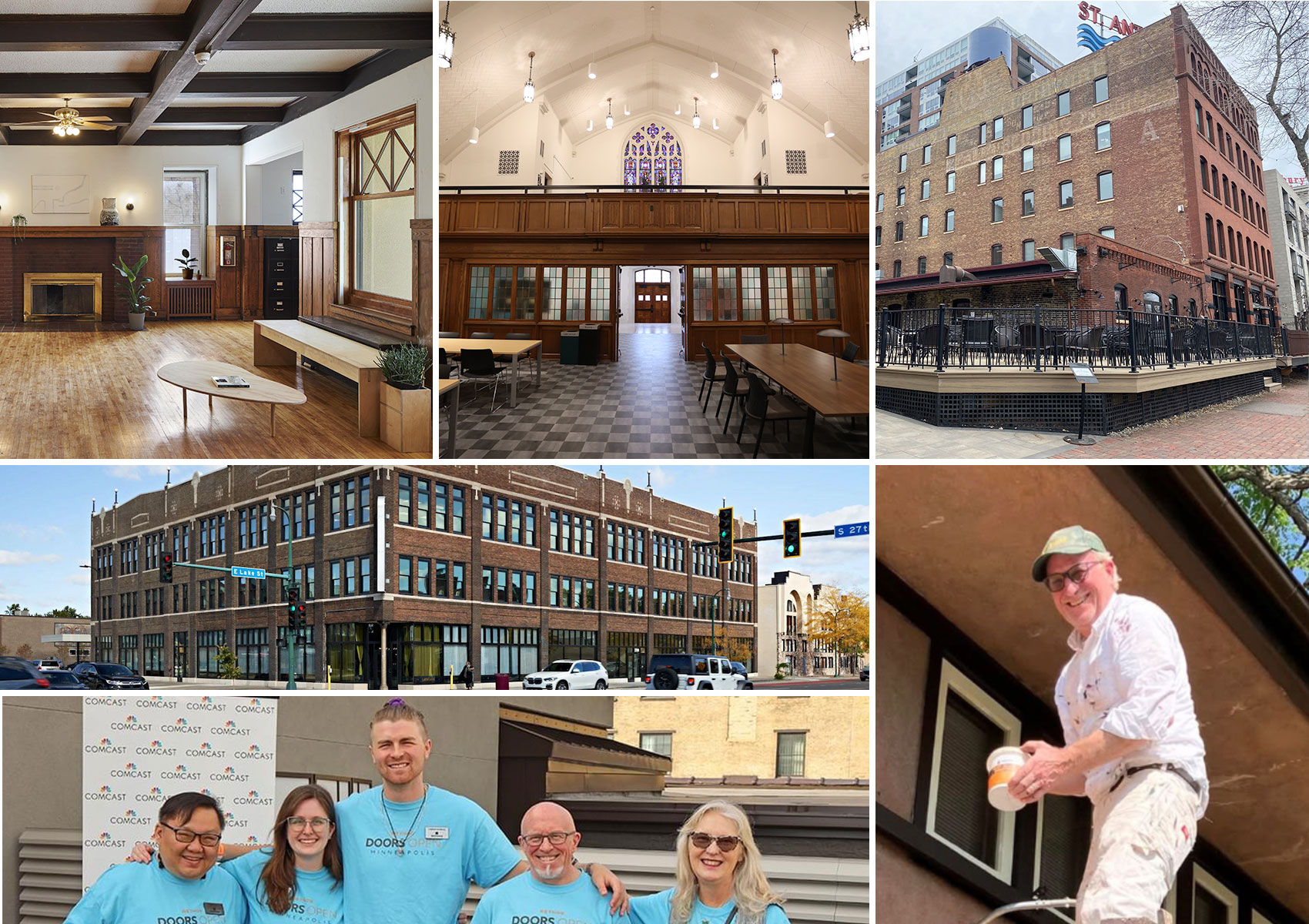Minneapolis, November 30, 2020—AIA Minnesota and the McKnight Foundation proudly announce that Catholic Charities of St. Paul and Minneapolis’s Higher Ground Saint Paul is the winner of the 2020 Affordable Housing Design Award. Higher Ground Saint Paul is the result of the bold and ambitious vision of Catholic Charities of St. Paul and Minneapolis to transform what was once a system of perpetual crisis management at their former shelter to a proven model that integrates dignified emergency services with resources that lead to stability and opportunity. At this facility, overnight emergency shelter is linked to one-on-one support, permanent housing, health care, and other critical services.
The five-story building provides emergency shelter for up to 356 women and men, 10 medical respite beds, plus a range of permanent housing options for another 183 people—including many long-term homeless individuals and veterans. The dwelling types include not only medical respite beds for men and women who are experiencing homelessness and are recovering from hospitalization, but also specialized housing and assistance for women experiencing severe alcohol substance use disorders, and Pay-for-Stay beds that have a minimal fee which is held in savings for clients and can be used for a first month’s rent or down payment for permanent housing.
Recognized for the award is Catholic Charities of St. Paul and Minneapolis; Cermak Rhoades Architects (now part of LHB, Inc.); Watson-Forsberg; Coen and Partners; Mattson Macdonald Young; Emanuelson Podas; and Pierce Pini & Associates.
All of the award submissions were reviewed, and the recipient project selected, by an esteemed panel of nationally recognized affordable housing experts, including: Joseph Kunkel, Assoc. AIA, design director, MASS Design Group, Santa Fe, New Mexico; Carlton Smith, FAIA, NOMAC, principal, MWA Architects, San Francisco, California; and Jess Zimbabwe, principal, Plot Strategies, Seattle, Washington.
Jurors noted the creative use of site constraints and the successful flow of different programming through the space. They were impressed with the good circulation and clean finishes within the space and noted the innovative use of precast concrete in the interiors. Jurors also noted the highly functional courtyard space and the creative accomplishment in the design’s ability to meet the highly complex programmatic needs of the facility.
Jurors were instructed to evaluate award submissions using the following criteria:
- Responsiveness. How creatively and successfully has the project responded to the needs of the client and the population served? How responsive is the project to demographic shifts and regional housing needs for affordable housing?
- Community connection. Was the project developed through a strong, collaborative project team? Did it show participation from the larger public, including neighbors, future users of the building, or citizens at large?
- Long-term asset. Did the project provide a long-term asset to the client, occupants, and the community? How did design contribute to the project’s long-term financial and social viability? Did design choices support community interaction and enhance community networks?
- Excellent design quality. Did the project demonstrate exceptional design quality—responsive to physical and social contexts as well as to any constraints imposed by funding and regulatory agencies?
Award recipients will be featured throughout the year and receive their award at the annual 2020 AIA Minnesota Awards Dinner on December 4. The Higher Ground St. Paul project will be included in an AIA Minnesota’s Housing Advocacy Committee 2021 Search for Shelter event.
To learn more about the award program at http://aiaminnesota.wpengine.com/get-involved/aia-minnesota-awards/affordable-housing-design-award/
The American Institute of Architects Minnesota, founded in 1892, is dedicated to strengthening our communities, improving our built environment and providing exceptional design. For more information on the organization and Minnesota architectural firms, visit our website.
The McKnight Foundation seeks to improve the quality of life for present and future generations through grantmaking, collaboration, and encouragement of strategic policy reform. Founded in 1953 and independently endowed by William and Maude McKnight, the foundation had assets of approximately $2.4 billion and granted about $90 million in 2019. Learn more at mcknight.org.
###



